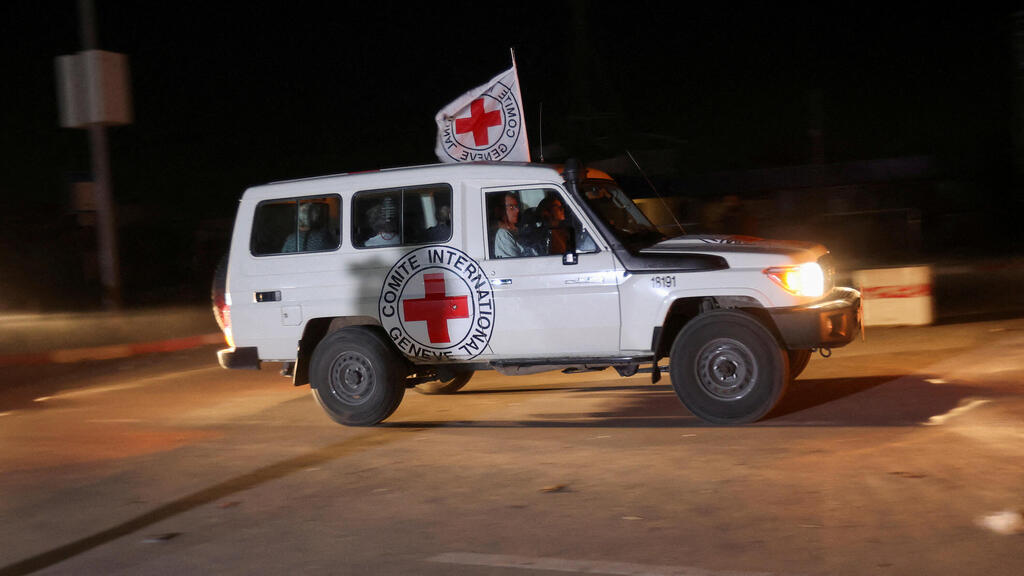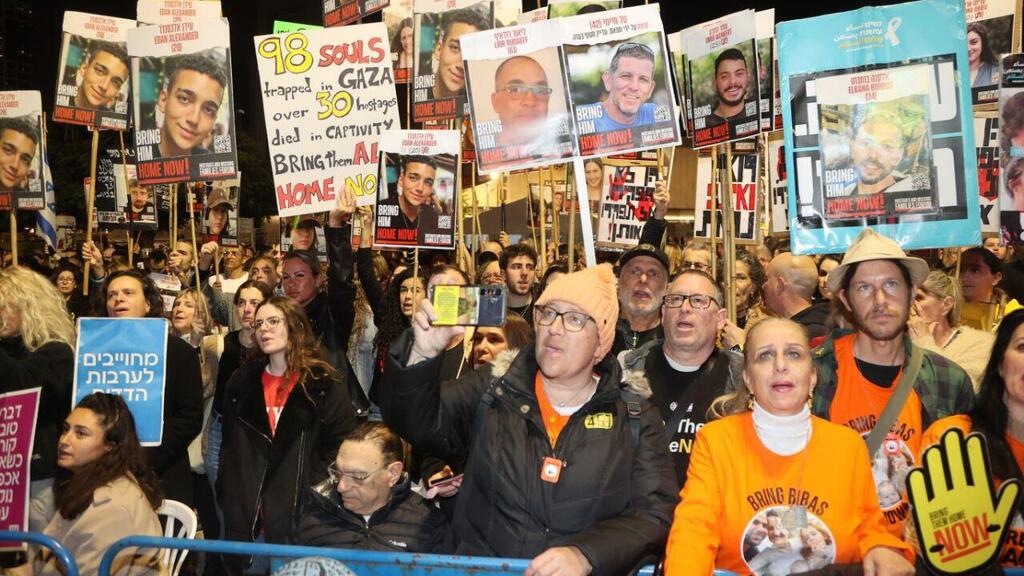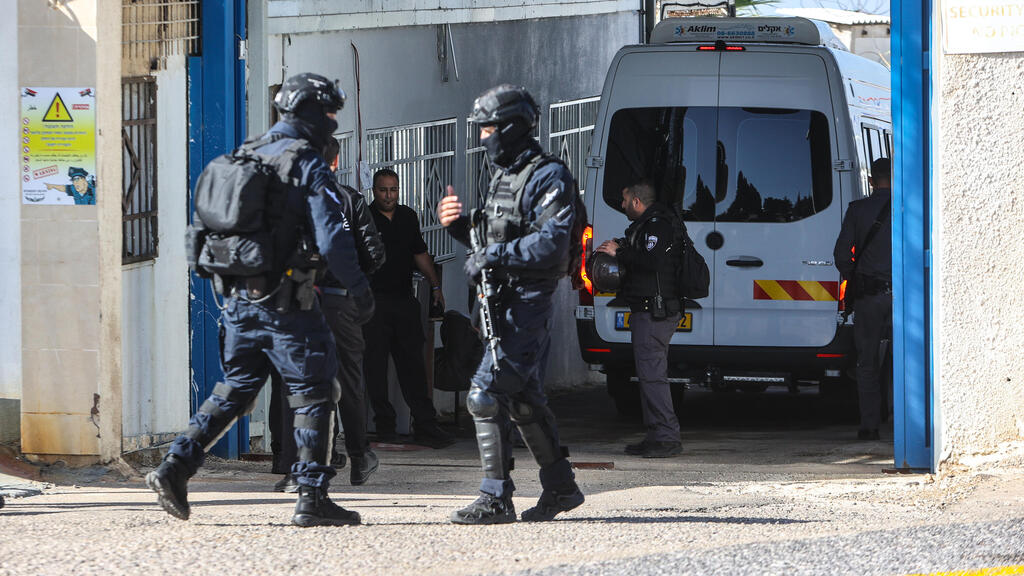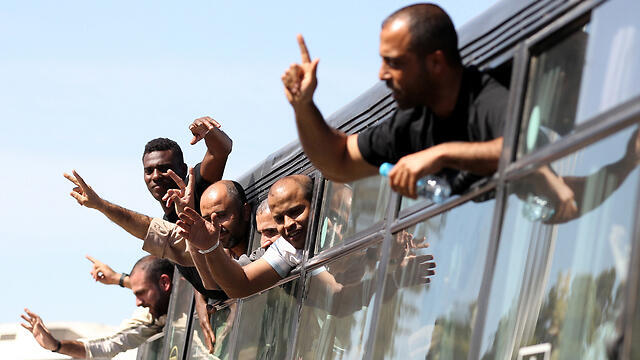Getting your Trinity Audio player ready...
Since the reports emerged regarding the progress of negotiations for a hostage deal, all relevant authorities have been preparing for the potential return of hostages held by Hamas in Gaza for the last 466 days. The Welfare and Social Affairs Ministry has been conducting repeated briefings for social workers to prepare them for the reception and support of the hostages upon their return. These briefings were held even though no official instructions have been received from the Hostage Administration or the Prime Minister’s Office.
Should the deal come to fruition, security forces will be the first to receive the hostages and provide them with initial physical and psychological assistance. They will then be transferred to hospitals, where social workers from the Health Ministry and the hospitals will offer further support.
In addition to medical examinations, the returning hostages will begin a gradual process of coping with their prolonged captivity under Hamas. They will receive professional help tailored to their individual needs, depending on their condition and willingness to share their experiences.
Upon returning home, each released hostage will be assigned a social worker who will address all their needs and assist in their rehabilitation. Social workers already know who they will be supporting, and they have detailed files about the hostages, including information on where they were abducted from, whether they lost close relatives, and their backgrounds prior to the October 7 massacre.
According to officials, social workers have also been briefed on how to address possible cases of sexual assault during captivity. There is also an understanding that the mental health of the hostages expected to be released will be significantly more challenging than those who returned after 50 days of captivity in the previous deal in November 2023.
<< Get the Ynetnews app on your smartphone: Google Play: https://bit.ly/4eJ37pE | Apple App Store: https://bit.ly/3ZL7iNv >>
The Welfare and Social Affairs Ministry emphasized that "we see the care and rehabilitation of the hostages and their families as a national mission and a professional commitment of the highest priority, and we have been preparing over the past year for their return, relying on the accumulated experience from previous hostage receptions. Our professional teams, including social workers and treatment personnel, are ready to ensure the best possible support.
Dr. Sharon Alroy-Preis, head of the Public Health Division at the Health Ministry, told Ynet that the health system has learned a great deal from previous hostage releases. "We must understand that the conditions here are truly different. People are arriving after over a year in captivity, and it’s a completely different world. But the lessons learned from the previous reception process will serve us."
"The Ministry of Health led the effort to receive the injured at hospitals during the previous round, and we learned a lot from that," she added. "It’s important to see what other health or welfare issues arise over time, as not everything surfaces in the first days of hospitalization, so long-term follow-up is also crucial. We are preparing."
Regarding what has been learned from previous release rounds, the senior official in the Health Ministry stated: "It’s important to ensure they are surrounded, to protect them from the media, from all kinds of curious individuals who want to talk. They need privacy. We must also make space for their families and those they want to be with. Additionally, there must be room for necessary medical tests to ensure proper health checks such as vitamins, minerals, and any nutritional deficiencies. We need to monitor and understand what needs to be tracked."
Preparing for opposition to releasing terrorists
Meanwhile, the State Attorney’s Office is preparing draft responses for potential petitions to the High Court of Justice, anticipating legal challenges to prevent the release of terrorists. The Pardon Department of the Justice Ministry is completing the necessary forms and requests for clemency for the security prisoners. This is all being done to ensure the swift completion of the deal with Hamas.
Accordingly, officials from the Attorney General’s office are expected to reach out to families affected by terrorist attacks – victims of terrorist organizations – to allow them to pursue legal appeals if they wish to challenge the release of a particular terrorist who harmed them.
Senior legal sources indicate that the deal with Hamas is expected to be approved by the High Court of Justice quickly, likely without delving into the specifics of individual cases. Instead, the Court will likely rule that such decisions are "non-justiciable," meaning they involve supreme political and security considerations where the court refrains from intervening.
Officials from the Pardon Department, the High Court Division, the Israel Prison Service (IPS), the Military Prosecution, and other security bodies have already started meeting to implement the expected government decision on the prisoner release framework. Once the deal is signed, a "release order" will be prepared for each prisoner. The Justice Ministry is preparing to publish the names of the released prisoners on its website to allow families of the victims 48 hours to file an appeal.
Prisoners sentenced by civilian courts will receive a pardon from the government and the President.
'There's no going back to the Shalit Deal'
Alongside the preparations for receiving the hostages, the Israel Prison Service (IPS) is preparing for the transfer of security prisoners expected to be released from Israeli prisons as part of the deal. IPS Commissioner Kobi Yaakobi recently instructed to step up preparations for this operation.
The list of released prisoners will be made public only after the deal is signed. It is already clear that some of the prisoners to be released will be those convicted of severe offenses and sentenced to multiple life terms. Based on lessons from the past, the IPS has decided that prisoners will not be allowed to extend their hands during the transfer in buses, aiming to prevent scenes like those that remain burned in the public memory from the 2011 deal to recover IDF soldier Gilad Shalit, when several released prisoners made victory signs.
The current plan is that the prisoners will be transferred in buses with tinted windows or without upper windows.
"The victory signs from the buses during the previous prisoner release 14 years ago will not happen again," according to an IPS official.
The preparations also include security for the transportation of prisoners in armored convoys from various prisons across the country to the Ofer facility, where the release will take place. IPS special units, including the Masada unit and other security teams, will be part of the security operation.
Furthermore, the IPS is preparing to receive prisoners currently under the control of the IDF and transfer them to its custody until their release. Another key concern is preventing the newly released prisoners from sending messages to their fellow inmates who will not be released.
Israel Prison Service Chief Commissioner Kobi Yaakobi expressed concern over the possibility of riots in prisons after the deal is completed. The fear is that prisoners who are not included in the release lists may feel they have nothing to lose and could challenge the system, attempting to disrupt order in the prisons.






